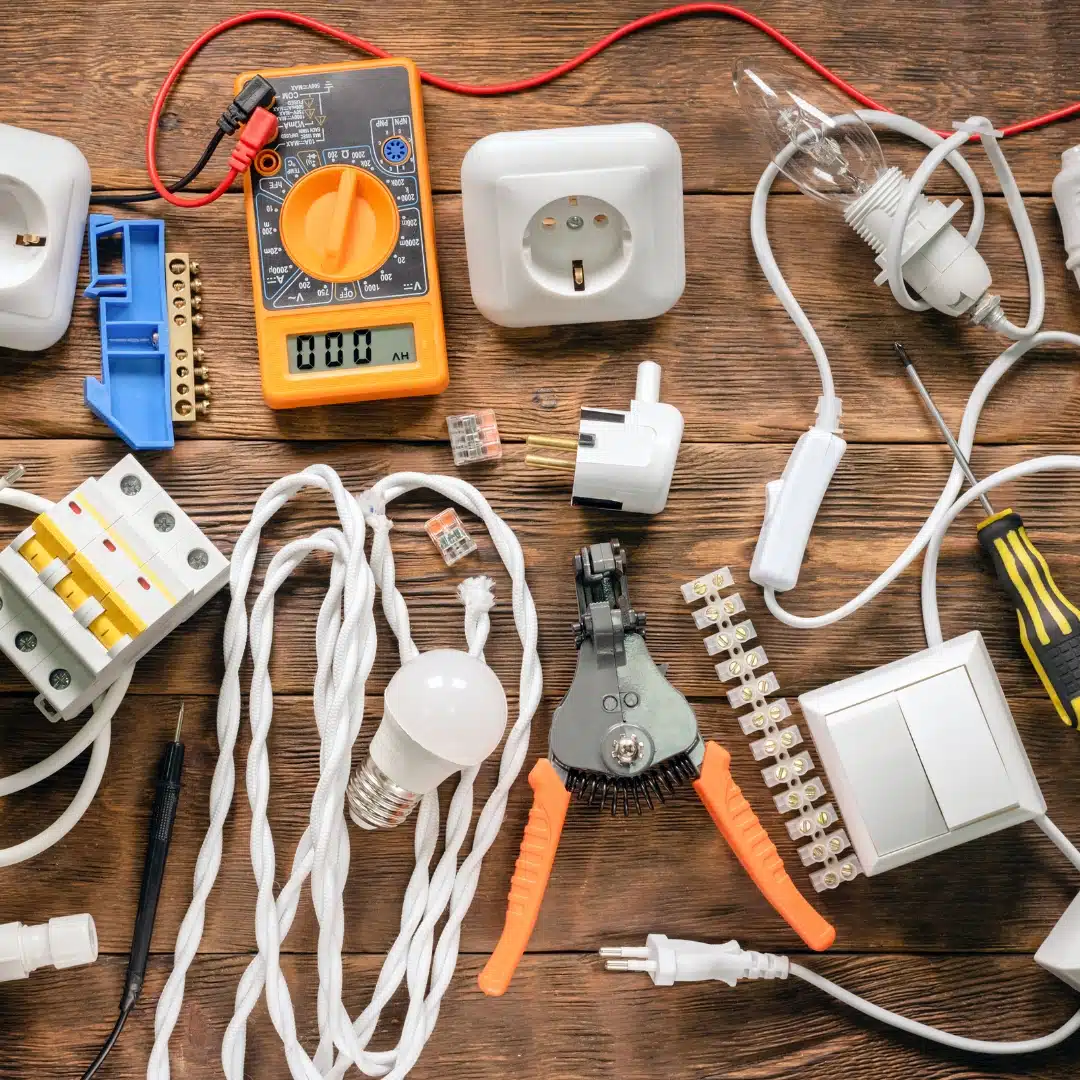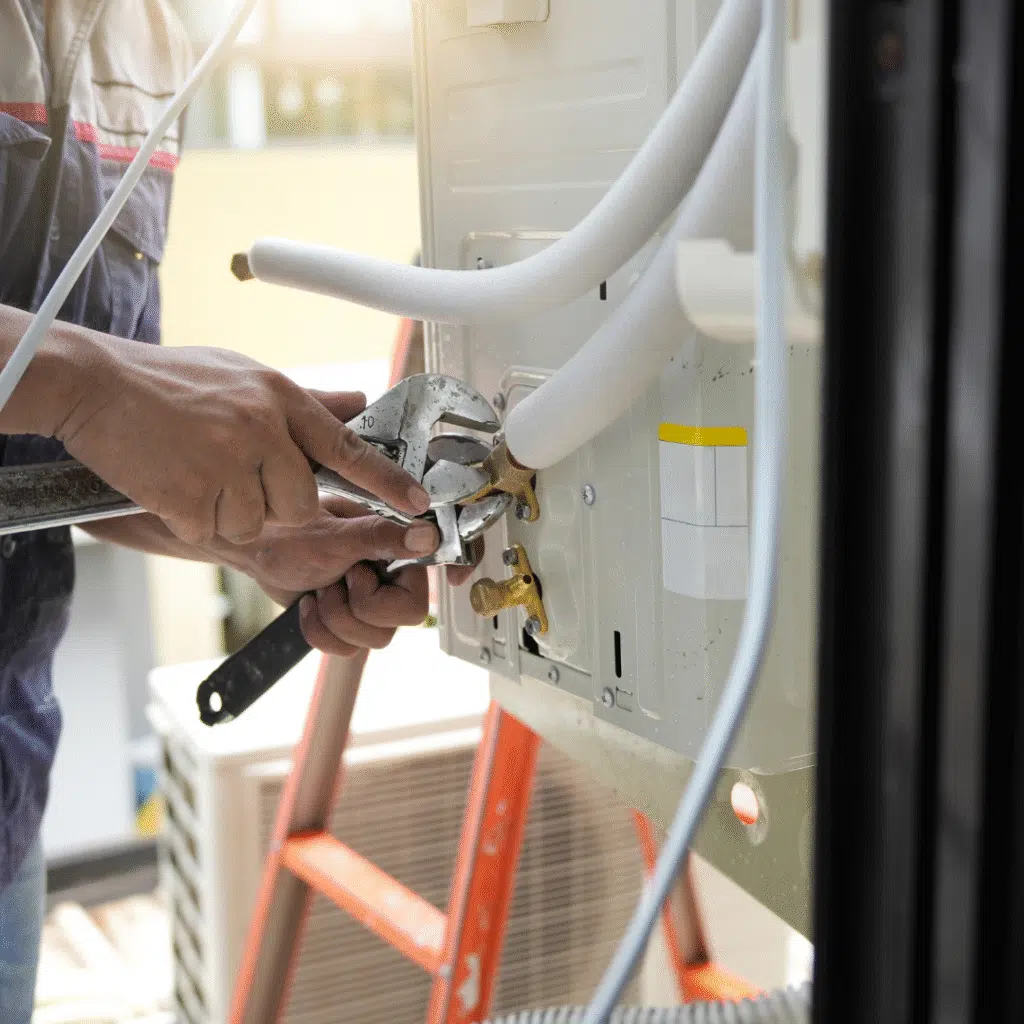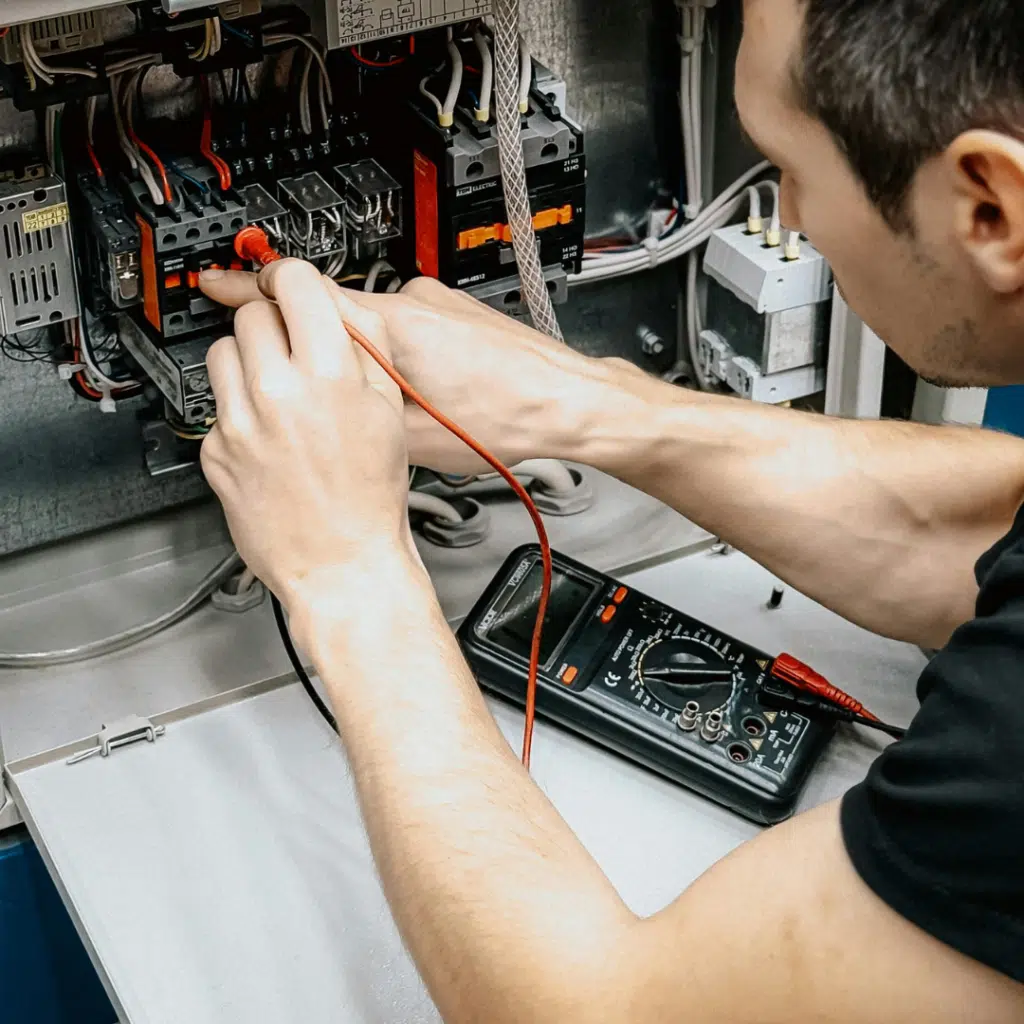In an age of YouTube tutorials and weekend renovation shows, it’s easy to believe you can tackle just about any home project yourself. But when it comes to electrical work, the risks far outweigh the rewards. From hidden wiring in your walls to high-voltage components in your switch, attempting DIY electrical repairs can endanger your home, your safety, and even your legal standing.
At Anywhere Electric, we’ve seen firsthand how DIY electrical projects can spiral into serious hazards—from fire damage to code violations. Here’s why electrical work should always be handled by a licensed professional.
1. The Fire Risk Is Real
Every year, more than 51,000 electrical fires occur in U.S. homes. Many of them are caused by faulty wire connections, overloaded circuits, or improperly installed light fixtures—the exact issues that tend to arise from DIY repairs.
Unlike other home improvement mistakes, errors in electricity often go unnoticed—until a power surge, short circuit, or overheating occurs behind your kitchen cabinet, near a ceiling fan, or around a concealed junction box. A DIY fix today could ignite a house fire tomorrow.
2. You Could Be Breaking the Law
Many states and municipalities require permits for electrical work—even something as simple as installing a new dimmer or relocating an outlet under a cabinetry line. If you attempt electrical repairs without a permit or inspection, you could be violating local building codes or the National Electrical Code (NEC).
This becomes a big problem when you sell your home. Failed inspections due to unpermitted electrical work can halt a sale or reduce your home’s value. Worse, insurance may not cover damages caused by unlicensed or illegal work.
3. Electrocution Is a Life-Threatening Risk
Most homeowners are unaware of how easily electrical current can pass through the body. Even low voltage systems (like 110–120 volts used in standard power supply circuits) can cause serious injury—or death—if mishandled.
Tasks like replacing a light switch, installing a USB outlet, or running new wires for under-cabinet lighting may seem simple, but without proper knowledge of amp, watt, and grounding requirements, you’re risking severe heat-related injuries, shock, or worse.
4. Electrical Systems Are Complex
Behind every working light fixture or outlet is a system of interconnected wires, transformers, screw terminals, breakers, and load calculations. A quick DIY adjustment could unintentionally disrupt your entire electrical circuit, leading to power outages, flickering lights, or damage to major appliances like your refrigerator, ceiling fan, or chandelier.
Electricians don’t just install and repair—they ensure proper load balancing, code compliance, and safety across your entire electrical service.
5. DIY Often Costs More in the Long Run
Many homeowners try to save money by handling electrical issues themselves, but those “savings” are often short-lived. One misstep can result in burnt wires, fried outlets, or damaged fixtures that require complete rewiring. And once a licensed electrician is called to fix the issue, the final cost is usually higher than it would have been had the job been done correctly from the start.
You may also lose eligibility for certain rebates, tax credits, or homeowner’s insurance benefits if non-professional work is discovered after a claim.
Call Anywhere Electric Before You DIY
When it comes to your home’s electricity, shortcuts are never worth the risk. At Anywhere Electric, our licensed electricians are trained to handle everything from complex panel upgrades to kitchen lighting, accent lighting, and remodel-ready wiring—all up to code, all done right the first time.
We help homeowners avoid the hidden dangers of DIY electrical work and offer safe, efficient solutions for every space—from the countertop to the pantry, and from the bathroom to the landscape lighting outside.
Contact Anywhere Electric today to schedule your professional electrical service and keep your home secure, efficient, and up to code.
FAQ: Why You Shouldn’t DIY Electrical Work
Is it legal to do my own electrical work at home?
It depends on your state or municipality, but in most cases, electrical work—especially anything beyond replacing a bulb—requires a permit and inspection. Always check your local regulations.
What’s the biggest risk of DIY electrical projects?
The top risks include electrocution, fire, and violating electrical code requirements. Even one small error can lead to serious injury or long-term system damage.
Can I install under cabinet lighting myself?
Some battery-operated options are DIY-friendly, but anything involving hardwiring should be handled by a licensed electrician to avoid damaging your cabinetry, causing a short, or voiding warranties.
Do all electrical projects require a permit?
Projects like panel upgrades, new circuits, and fixture installations typically do. Your electrician will know what’s required and can obtain the appropriate permits.
Will my insurance cover damage from DIY electrical work?
Not always. Many homeowner’s insurance policies won’t cover damage caused by unlicensed or non-permitted work. Using a professional helps protect your policy coverage.



